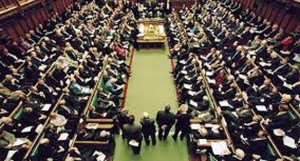 Today DECC published the consultation document on the future of the Energy Company Obligation (ECO). The consultation will run from 5th March to the 16th April.
Today DECC published the consultation document on the future of the Energy Company Obligation (ECO). The consultation will run from 5th March to the 16th April.
DECC says:
The majority of these proposals were highlighted as part of Government’s announcement on 2 December 2013. As set out in the December announcement we are proposing these changes to reduce pressures on consumer bills and ensure ECO provides value for money for energy consumers; while continuing to help tackle fuel poverty, support the development of sustainable energy efficiency supply chain and improve the energy efficiency of our housing stock.
While it is clearly right that we look to ensure government policies do not unreasonably impact on consumer bills, we also recognise the impact of these proposals on the energy efficiency market. In particular we recognise that the uncertainty created by the proposed changes has had an effect on delivery on the ground and that consequently the supply chain has seen a contraction in demand.
This consultation is a key opportunity to make sure we implement these changes as effectively as possible, taking into account industry needs and the experience of ECO delivery over the last year.
Consultation closes 16th April 2014.
Read more here.
 The review looked at how firms treat customers in arrears or financial difficulty. This is of particular concern as the possibility of interest rate rises looms. The review finds that arrears management in firms has improved since the last review. However, mortgage lenders and administrators need to place greater emphasis on delivering consistently fair outcomes for customers based on their individual circumstances.
The review looked at how firms treat customers in arrears or financial difficulty. This is of particular concern as the possibility of interest rate rises looms. The review finds that arrears management in firms has improved since the last review. However, mortgage lenders and administrators need to place greater emphasis on delivering consistently fair outcomes for customers based on their individual circumstances. Written evidence can be submitted until 13th March. Members might like to consider responding. See
Written evidence can be submitted until 13th March. Members might like to consider responding. See 
 This
This  A briefing called Ethnicity and deprivation in England was published in December 2013 by the Centre on Dynamics of Ethnicity (CoDE) and others as part of a series The Dynamics of Diversity: evidence from the 2011 Census. It examines how likely ethnic minorities are to live in deprived neighbourhoods.
A briefing called Ethnicity and deprivation in England was published in December 2013 by the Centre on Dynamics of Ethnicity (CoDE) and others as part of a series The Dynamics of Diversity: evidence from the 2011 Census. It examines how likely ethnic minorities are to live in deprived neighbourhoods.